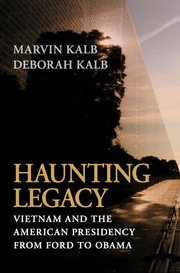Q&A with counterinsurgency expert John Nagl
 Thursday, June 28, 2012 at 5:53AM
Thursday, June 28, 2012 at 5:53AM John Nagl, a leading counterinsurgency expert, served in the U.S. Army for two decades. He is a non-resident senior fellow at the Center for a New American Security, and is the author of Learning to Eat Soup with a Knife: Counterinsurgency Lessons from Malaya and Vietnam.
Q: Your study, "Learning to Eat Soup with a Knife: Counterinsurgency Lessons from Malaya and Vietnam," has been very influential as the United States fought wars in Iraq and Afghanistan. What would you say are the most important counterinsurgency lessons the U.S. military applied from Vietnam to Iraq and Afghanistan?
A: The single most important thing to remember about counterinsurgency is that it is messy and slow—“like eating soup with a knife,” in T.E. Lawrence’s words. It is hugely important that political decisionmakers and military strategists understand how grindingly difficult and expensive counterinsurgency campaigns are. They rarely intend to fight a counterinsurgency campaign when an intervention begins, and tend to be slow in both recognizing and adapting to defeat an insurgency when one erupts. In Vietnam, the U.S. military was typically slow to recognize and adapt to the demands of the counterinsurgency campaign it confronted.
Over time, it improved its performance, particularly under the command of General Creighton Abrams. The lessons it learned—about the importance of building capable local forces, linking political and military lines of effort, conducting information operations, protecting the population rather than focusing exclusively on killing insurgents, holding the terrain you’ve cleared rather than allowing the insurgents to reoccupy it—were forgotten in the wake of the Vietnam War, and only relearned several years into the experience in Iraq. It took several more years to apply them to the campaign in Afghanistan.
Q: Do you feel that counterinsurgency was/has been given enough of a chance in Iraq and Afghanistan?
A: The lessons of Vietnam were applied to the Iraq campaign under the leadership of General David Petraeus, who had written his doctoral dissertation on Vietnam. He later had the chance to practice counterinsurgency in Afghanistan, which had been starved of resources for many years. Counterinsurgency worked where it was resourced, particularly in southern Afghanistan, albeit slowly and at great cost. It was not applied across all of Afghanistan, and even in the south American forces are being withdrawn and Afghan troops thrust into the lead more rapidly than many observers would recommend. Whether the Afghans will be able to hold what Americans and NATO troops have cleared of insurgents at such cost will depend largely on the American commitment to Afghanistan after the formal transfer of authority in 2014.
Q: As someone who served in the military for two decades, do you think the lessons of Vietnam were applied to each conflict in which you served, or was the Vietnam legacy more of a factor in some than in others?
A: Early in my career I served in Operation Desert Storm, a war that was heavily influenced by perceived lessons of Vietnam—fight with overwhelming forces, win decisively, then withdraw rapidly. It was the war that the Pentagon had wanted to fight ever since Vietnam—a war against a conventional enemy on a battlefield all but devoid of civilians. Satisfying as it seemed at the time, however, Desert Storm was a military triumph without a political victory; Saddam Hussein remained in power to threaten his neighbors, a low-level air war continued for a decade, and ultimately we had to fight again to remove him from power—and face the messy reality that it is much harder to build a new government than it is to destroy one of which we don’t approve.
Q: What do you see as a "good enough" outcome for Afghanistan?
A: I recently published an article, which argued that Afghanistan was far more likely to end like the Iraq war than like Vietnam. America is likely to leave behind a substantial force of advisors helping Afghan security forces fight a weakening but still dangerous Taliban; Pakistan will continue to be schizophrenic, alternately helping the Taliban and fighting against them; and the Afghan government that follows President Karzai will remain corrupt. As long as America maintains a significant force in country, however, the central government will stand. Ultimate defeat of the Taliban depends mostly upon the actions of Pakistan, which is the most dangerous country in the world for the United States, and is likely to remain so.
Q: In this presidential election, neither candidate has served in the military. Do you think military experience is important for a president, and do you think it affects presidents' decision-making and/or interactions with the Pentagon?
A: Interestingly, in every election since the end of the Cold War, the presidential candidate with the less distinguished military record has been elected. I believe that this is another unfortunate legacy of the war in Vietnam, and am hopeful that this generation of military veterans will bring more military experience back into a government that would benefit from the spirit of service and sacrifice demonstrated so fiercely by the post-September 11th generation of veterans.
Q: Anything else we should know?
A: After the Vietnam War, the United States intentionally turned away from the lessons it had learned at such a cost in blood and treasure. It has paid the price for those lessons again in Iraq and Afghanistan, and there are promising signs that it will not forget them again in the recent Joint Staff “A Decade of War” study. There is every chance that America will fight another counterinsurgency campaign, in a generation or perhaps much sooner; we must ensure that we do not have to pay for the lessons of counterinsurgency yet again.
Interview with Deborah Kalb, co-author of Haunting Legacy.



Reader Comments